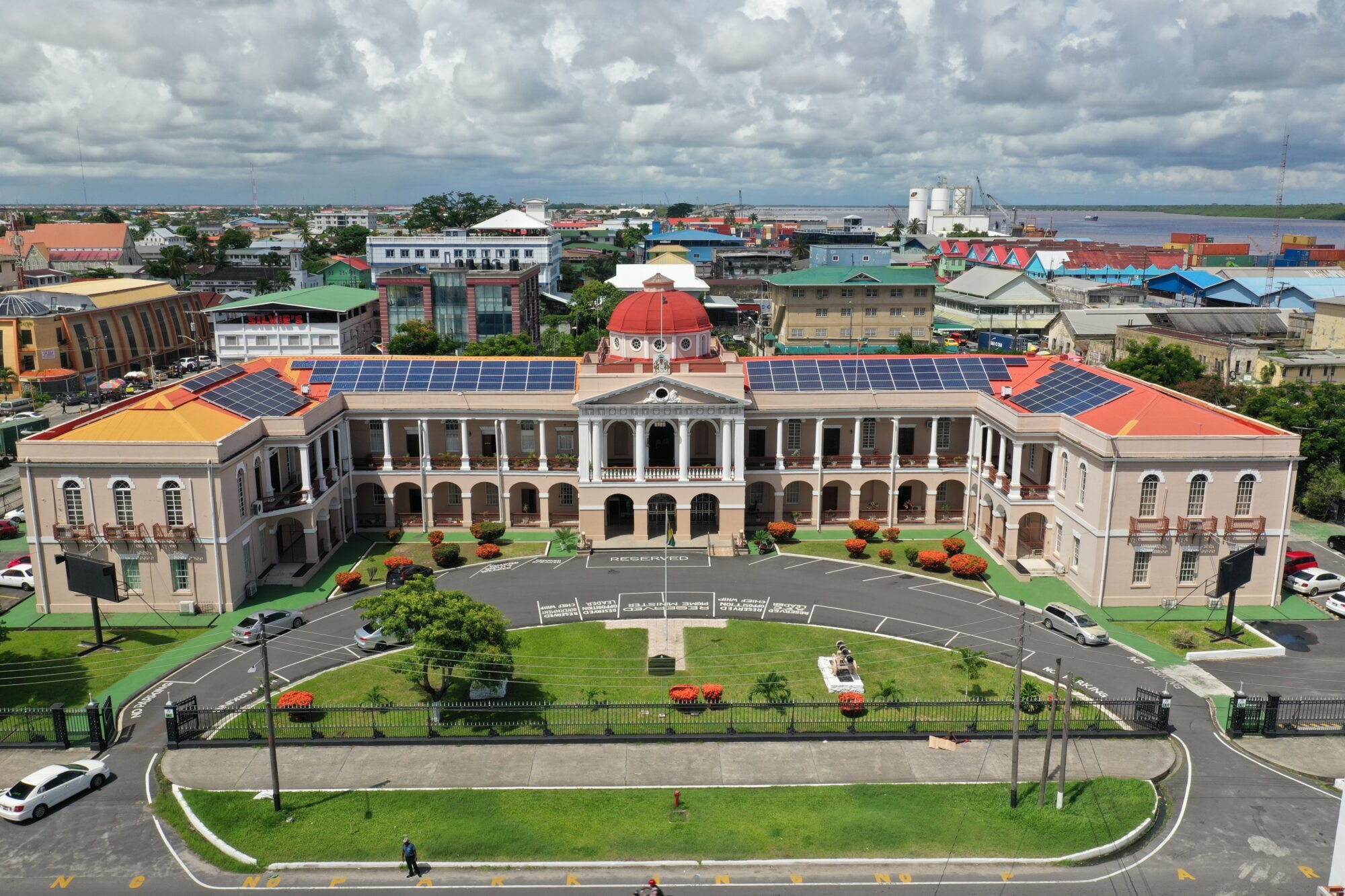Understanding Guyana’s Political Landscape: History, Parties, and Future Elections
Pelham VanCooten
July 1, 2024

Guyana is a former British colony that gained independence in 1966. Guyana has a hybrid republican-parliamentary democratic system with a 65-member unicameral National Assembly. Members of the National Assembly are elected to five-year terms; 25 representatives are elected in 10 geographical constituencies, while 40 are elected by proportional representation nationally.
The presidential candidate of the party receiving the most votes during a general election becomes president. The president appoints the prime minister and Cabinet. Dr. Mohamed Irfaan Ali of the People’s Progressive Party/Civic (PPP/C) is the country’s current president following the March 2020 elections. The PPP/C has the most seats in parliament, 33 seats. The leading opposition coalition, the Partnership for National Unity and Alliance for Change (APNU/AFC) won 31 seats, and a smaller coalition (A New and United Guyana (ANUG)-Liberty and Justice Party (LJP)-The New Movement (TNM)) won the remaining seat.
The ruling People’s Progressive Party/Civic (PPP/C) is the country’s oldest political party. It was established in 1950 by Cheddie Jagan and his wife, Janet Jagan. The People’s National Congress Reform (PNCR) is the largest party in the opposition coalition – APNU. The PNCR is the country’s second oldest political party. It was established in 1957 after the schism of the original People’s Progressive Party (PPP). The People’s National Congress (PNC) held office for almost three decades immediately after independence (1966-1992). The other main opposition party is the Alliance for Change (AFC). Even though the two main parties have dominated the political landscape, political parties are formed and generally operate without interference in Guyana.
An ever-present feature of Guyanese politics is the long-standing tendency of the two major political parties to appeal to the racial sensibilities of their respective constituencies. Historically, the PPP/C is strongly supported by mainly Indo-Guyanese and the PNCR wins the support of mostly Afro-Guyanese. Given the country’s history with slavery and colonialism, the residual ethnopolitical divisions have left many Afro-Guyanese feeling disenfranchised and disempowered.
The country has seen several episodes of political unrest and violence. The stalemate from as recent as the 2020 general elections lingers. As the country prepares for the next general elections scheduled for November 2025, Guyana’s position in the region and the world is continuing to evolve. This induces far greater interest in and consequences for the outcomes of the political processes. Stay tuned in to Guyana Tapestry for informed perspectives and analysis on issues of interest and importance to our diaspora communities.
